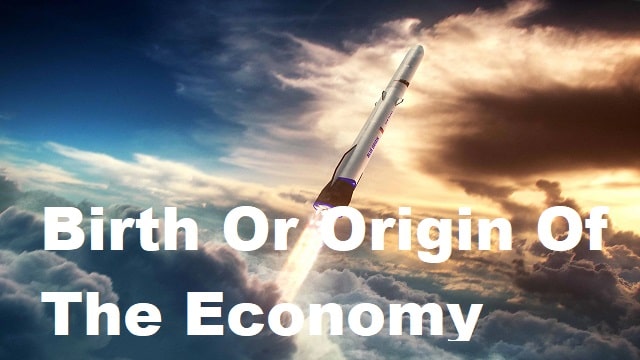What was the origin of the economy?
Knowing the origin of the economy is more important than anyone can imagine. You have to know the past to understand the present.
Economics is a fundamental part of our history and everyday life. Since the dawn of humanity, people have sought ways to organize their resources, such as food and labor, to improve their communities.
In essence, economics studies how we manage what we have to satisfy our needs and desires.
This social science is not a modern invention. Its roots are sunk in the sands of time, touching the great civilizations of the past such as Mesopotamia, Greece, the Roman Empire, and other influential cultures such as the Arab, Persian, Chinese, and Indian.
Beginning of the study of economics
The study of economics dates back to the ancient civilizations of Mesopotamia, Greece, the Roman Empire, the Arab, Persian, Chinese, and Indian civilizations.
The greatest influence of this period comes from the Greeks, who used the word economy for the first time. They then used it to refer to the administration of the home (oikonomia, oikos for house, and neimen for norm).
Plato gave a definition of economics divided into two parts, on the one hand, the study of domestic administration, and on the other, the study of commerce. Aristotle was the first analytical economist, he referred to various economic topics, which have remained relevant since then, such as his economic definitions, the phenomena of change, and monetary and value theories.
In the Middle Ages, the contributions to the economy of feudalism and scholastic philosophy are noteworthy. Great figures in economic science such as Saint Thomas Aquinas, Antonio de Florencia, and Ibn Jaldún stand out.
The birth of economics as a science
The Jesuit scholars of the Salamanca school established the first modern economic theories, defending the benefits of private property to economic activities. For these contributions, they have been described on numerous occasions as founders of economic science, although most of their contributions were lost until the 20th century.
Later, mercantilists and physiocracy stood out:
- The mercantilists, who claimed that wealth was generated through the exchange of goods and the accumulation of gold and silver.
- Physiocracy held that wealth was only generated through agricultural activities and that the exchange of goods, and even industry, did not add any value. Unlike the mercantilists, the physiocrats advocated laissez-faire economic policy, defending the free market against state intervention.
Economics as an independent science
It was at the end of the 18th century that economics began to be widely considered a science, since the publication of Adam Smith’s book , The Wealth of Nations. The publication of this book has come to be described as the true birth of economics as an independent scientific discipline since until then it was included within philosophy.
The theories proposed during this period are known as classical economics. In addition to Adam Smith, other economists who were very important to economics were Thomas Robert Malthus, with his essay on the principles of population, and David Ricardo, with his theories of comparative advantage, the law of diminishing returns, and his theory on the distribution of income.
Since then, several economic currents have emerged. Among them, the most notable are Marxism, neoclassicism, Keynesianism, monetarism, and economic liberalism.
Key points
- It has been an integral part of society since prehistoric times, focusing on how people manage resources to satisfy needs and desires.
- It dates back to ancient civilizations around the world, including Mesopotamia, Greece, and the Roman Empire, among others.
- The economy has evolved significantly over the centuries, with important contributions during the Middle Ages and other historical periods.

